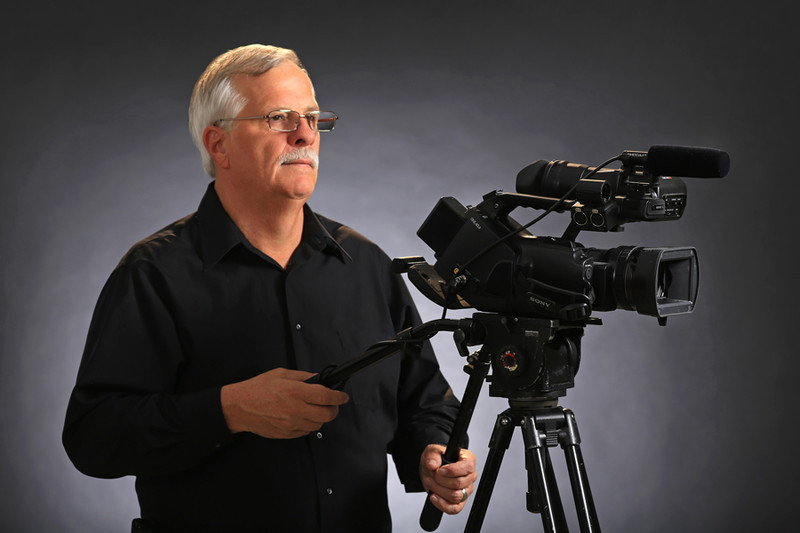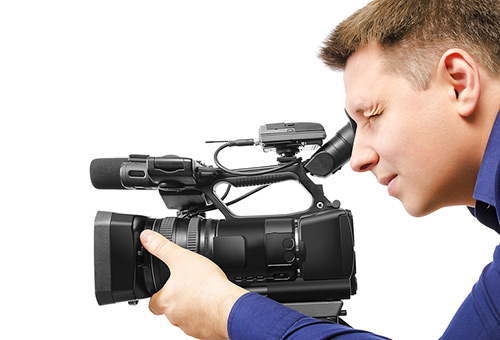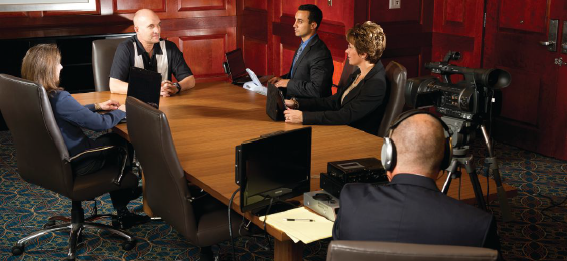The Duty of Legal Videography in Depositions and Trials
Lawful videography has arised as an important tool in both depositions and tests, offering a diverse method to documenting witness testimonies. As lawful specialists significantly recognize its value, it triggers a deeper examination of just how these aesthetic records can influence juror perceptions and test results.
Significance of Legal Videography
Legal videography plays an essential role in the documentation and discussion of depositions and trials. This specialized area integrates technical skills with legal expertise to develop a reputable document of proceedings that can dramatically affect case end results. The aesthetic aspect of lawful videography boosts the understanding of witness testament, enabling jurors and judges to observe not only the talked words however also the temperament, emotions, and body language of the witnesses.

The significance of lawful videography extends past the court room; it likewise plays a crucial function in protecting evidence for future recommendation, whether for appeals or more lawsuit. Thus, its combination into the lawful process is necessary for making sure a reasonable and exact depiction of the realities, eventually contributing to the quest of justice.

Process of Legal Videography
While catching the subtleties of depositions and tests, the process of legal videography includes numerous critical steps that make sure high-quality, accurate recordings. At first, a specialist lawful videographer prepares by reviewing the situation products and recognizing the specific demands of the deposition or trial. This preparation consists of familiarizing themselves with the participants and the context, which assists in catching significant details.
On the day of the recording, the videographer establishes the necessary equipment, which usually includes high-definition video cameras, microphones, and appropriate illumination. Making certain optimal angles and sound top quality is crucial, as it directly influences the effectiveness of the recording. The videographer interacts with attorneys and participants to establish procedures, making sure that everybody comprehends the recording process.
During the deposition or test, the videographer diligently tape-records the proceedings, paying attention to both spoken and non-verbal signs. legal videography. This consists of capturing the behavior and responses of witnesses and lawyers. After the session wraps up, the videographer may modify the video for clarity and compliance with legal standards, producing an end product that precisely mirrors the process for future referral and usage in legal contexts
Benefits in Depositions
The unification of videography in depositions uses numerous advantages that boost the overall process of gathering evidence. One key advantage is the capacity to record witness testaments with visual and acoustic integrity, look at this web-site giving a more precise depiction of the witness's attitude, tone, and body movement. This multidimensional technique enables attorneys and juries to assess reliability better than traditional written records alone.
In addition, videographed depositions act as an effective tool for preserving testimony. Needs to a witness come to be inaccessible for trial, their taped deposition can be played in court, ensuring that their proof continues to be available and pertinent. This aspect dramatically reduces the risk of losing essential information that can affect instance results.
Additionally, making use of legal videography promotes far better preparation for lawyers. Assessing video clip footage enables lawful groups to analyze and refine their methods, recognizing toughness and weaknesses in their cases. This preparatory advantage can cause even more engaging discussions in court.
Finally, videography boosts the overall professionalism and trust of the deposition procedure, instilling confidence in customers relating to the thoroughness of their lawful representation. By leveraging innovation, attorneys can significantly enhance the efficiency of depositions.
Effect On Tests
In numerous tests, the integration of videography can significantly influence the presentation of proof and the court's assumption. Legal videography catches witness testaments and crucial proof in a vibrant style, allowing jurors to involve with the product on several levels. This visual component boosts the narration element of a trial, offering context and emotional vibration that typical text-based evidence might do not have.
In addition, video clip recordings can offer as powerful tools for impeachment throughout interrogation. When disparities occur in between a witness's previous declarations and their court room testimony, video evidence supplies an objective reference that can guide jurors' viewpoints. This immediacy and clarity can strengthen the reliability of a celebration's narrative while all at once undermining opposing arguments.
Additionally, using videography can aid streamline complex information, making it a lot more available to jurors that may battle to grasp elaborate information offered only via spoken testament. By combining visuals with auditory info, legal videography can improve retention and understanding, inevitably influencing the court's decision-making process. The effect of videography in tests extends past plain visual appeals; it plays an essential duty in shaping the legal landscape and end results.
Future Trends in Legal Videography
As we look towards the future of lawful videography, numerous arising patterns assure to reshape its function within the court room. One significant pattern is the combination of expert system (AI) in video evaluation and editing and enhancing - legal videography. AI can improve the process of recognizing essential moments in taped depositions, permitting lawyers to quickly access appropriate material, read this post here therefore boosting efficiency in case preparation
Furthermore, the surge of digital fact (VIRTUAL REALITY) and augmented reality (AR) innovations is expected to transform how jurors experience evidence. By immersing jurors in a simulated atmosphere, these innovations can supply a much more extensive understanding of complex situations, leading to even more enlightened deliberations.

Additionally, the boosting need for remote depositions, sped up by the COVID-19 pandemic, will likely continue. Legal videographers will certainly require to adapt to new software and website here systems to make certain high-grade recordings in virtual settings.
Last but not least, the expanding emphasis on data security will require more stringent procedures for storing and sharing video proof. As the lawful landscape progresses, legal videographers should stay abreast of these fads to preserve their significance and effectiveness in the judicial procedure.

Conclusion
In summary, legal videography serves an important feature in the judicial process, enhancing the honesty of depositions and trials. As technology continues to progress, lawful videography is positioned to further change its function within the lawful landscape.
Comments on “Professional Legal Videography for Your Legal Needs.”